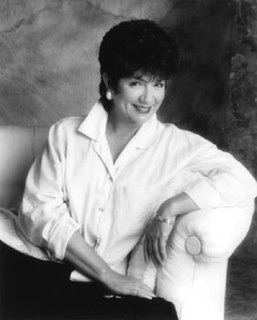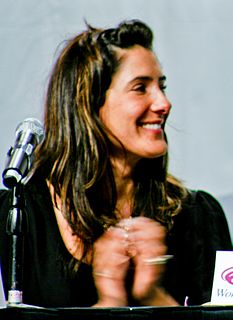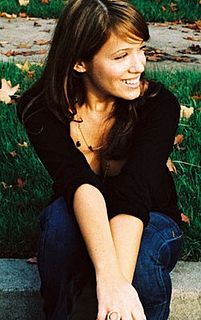A Quote by Natalie Goldberg
The odd thing is, that I wrote The Great Spring while I had cancer and it's not about cancer. It was after I was done with cancer that I wrote a book about it.
Related Quotes
I wrote the book Don't Die, My Love as I was going through radiation, so it certainly has an air of authenticity about it because I was there. I think all of my books took on kind of a deeper tone when the lady who wrote about cancer all of a sudden had cancer. I'm doing well. I went through it all and they said, 'You're fine."
My father died of brain cancer in 1991. I do not know anyone whose life has not been touched by the loss of a loved one to cancer. I wrote my book 'Gracefully Gone' about my father's fight and my struggle growing up with an ill parent. I wrote it to help others know they are not alone in this all-too-often insurmountable war against cancer.
Cancer is too real, and too awful, and I can't make it good or magical. I couldn't even read a book where a character had cancer, for a while... But now I've reached a point where I don't think about cancer nonstop anymore, and sometimes I worry about that - I'm going to forget what I went through; I'm going to forget how horrible it was.
But my body was telling its story. I have read a lot of stuff about cancer. I needed this book. I wish I'd had this book when I had cancer. I wanted someone to be talking to me about "fart floors." I wanted somebody telling me what it was like to have a colostomy bag. I felt so alone. And if you're a person who's been traumatized by past abuse, it's so potentially re-traumatizing. You slip right into "oh my god, this is the only person this has happened to before" mentality: "I'm especially bad and I have especially bad cancer..."
































